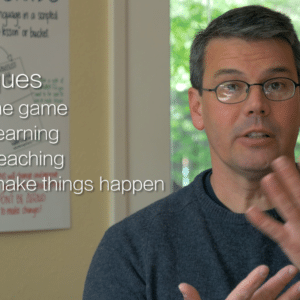You want to hunt a target skill, so therefore you need to find a fluent fool. You choose the fluent fool according to the accent you’re hunting, or simply accept their particular accent as your target.
“We all should know that diversity makes for a rich tapestry, and we must understand that all the threads of the tapestry are equal in value no matter what their color.” – Maya Angelou
“Diversity is the primary good.” – Jason Godesky
The common concept of dialects and accents is mostly fiction. There is no language anywhere without its own accent, or that could be counted as a dialect itself. Meaning, there is no standard, accentless version of any language – in fact, there is no French, no English, no Spanish, Russian. There are only countless variations on the overall common theme of any one of these languages, often blurring into the language groups around them.
The urge for “standardization” that has swept the modern world merely belies the fact that languages are alive, and that choosing one frozen accent to be the “standard” means destroying or stigmatizing all the other equally significant accents.
Say you want to teach English to immigrants – well, which English do you teach? Which is “correct”? The “Queen’s English”? Australian English? Scots English? Californian English? New York City English (which neighborhood)? Hindi English (Hinglish)? Singapore English (Singlish)? Chinese English (Chinglish)? All these Englishes (and English-impacted languages) either are, or may be, spoken by native speakers who grew up speaking them. So which one do you teach?
The “correct” language to teach is almost always the one spoken by the most fluent speaker in the room – meaning, the one to which you actually have a live speaker. “Correctness” is not found on the page, but in the daily vitality of the living language itself. So which English? Usually the best option is to teach your English accent – you can never teach “English”, but you can teach an English dialect. And if you’re an English speaker, it’s easiest to teach the one you speak.
This goes for any skill or knowledge base – they are at their most adroit and relevant in their own particular context. The generalized, decontextualized, standardized skill is, by its nature, less applicable to any particular context, than a skill developed for just that context.
And perhaps paradoxically, by learning one accent that truly belongs to its people, place, and lineage, we do deeply learn a generalized approach: that of adapting our fluency to the particular context we find ourselves in. The art of fluency hunting.
By hunting for the unique, we are fluent in the universal.
Introducing the technique in language acquisition
Short: “Technique: Accent. Accent means you are learning just one particular accent – there is no such thing as “French”, or “Spanish”, just countless accents or dialects. Today we’re learning just one – the one I know.”
Applying the technique to language acquisition
Accent means, whoever our fluent fool is, or whatever accent the fluency hunter/game leader has chosen, that is the accent in play. Accent is a living thing – we almost never play with theoretical accents (unless with conlangs, or “dead” languages like classical Latin). We always prioritize live speech over “correct” language found on the page. You can answer any objection to the accent in play by a shrug of the shoulders, and marking technique Accent.
But what about…?
New players may spend too much effort trying to get a ‘perfect’ accent.They may also do the opposite – object to the accent in play, or claim one accent is “right”, and another is “wrong”. There is also the problem of playing more than one accent in the same game.
- tq Mumble encourages players that “close enough is good enough” – no need for a perfect accent in the beginning.
- tq Accent and Fluent Fool means the game leader learned their accent from a particular person – and that is the game we’re playing. Next time we can play in a different accent, if players would like, as long as they can find a fluent fool to lead them.
- tq Accent means the game leader learned exactly this accent, and no other, from their fluent fool – even if players think they should be speaking this accent differently. Also, Mumble encourages everyone to just get close enough – accent concerns will clear up on their own, as players climb in proficiency, interacting with fluent speakers.
- tq Limit encourages game leaders to stick to one accent in one particular game – multiple accents can get confusing, and make it difficult for the Lunatic Fringe to Pull us through it, because they won’t all be saying the same thing.
- tq Language Hunter – you have two options for which accent to guide you: the accent of the most fluent speaker in the room (the fluent fool), or the accent of the most fluent game leader (language hunter). Language hunters often defer to fluent fools, simply because language hunters have greater ability to manage and learn multiple accents – and this fluent fool’s accent is yet another valuable fluency to add to the community treasury.





